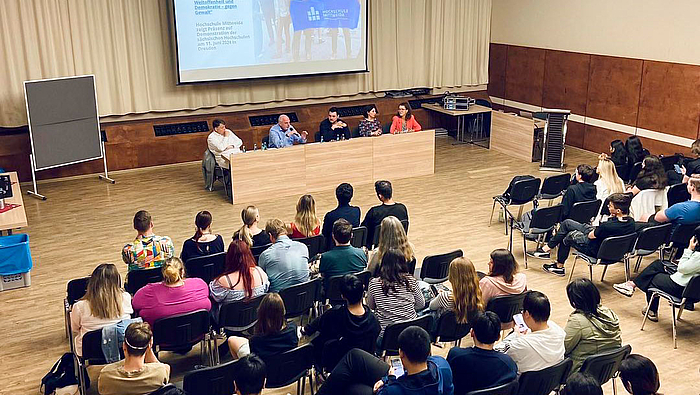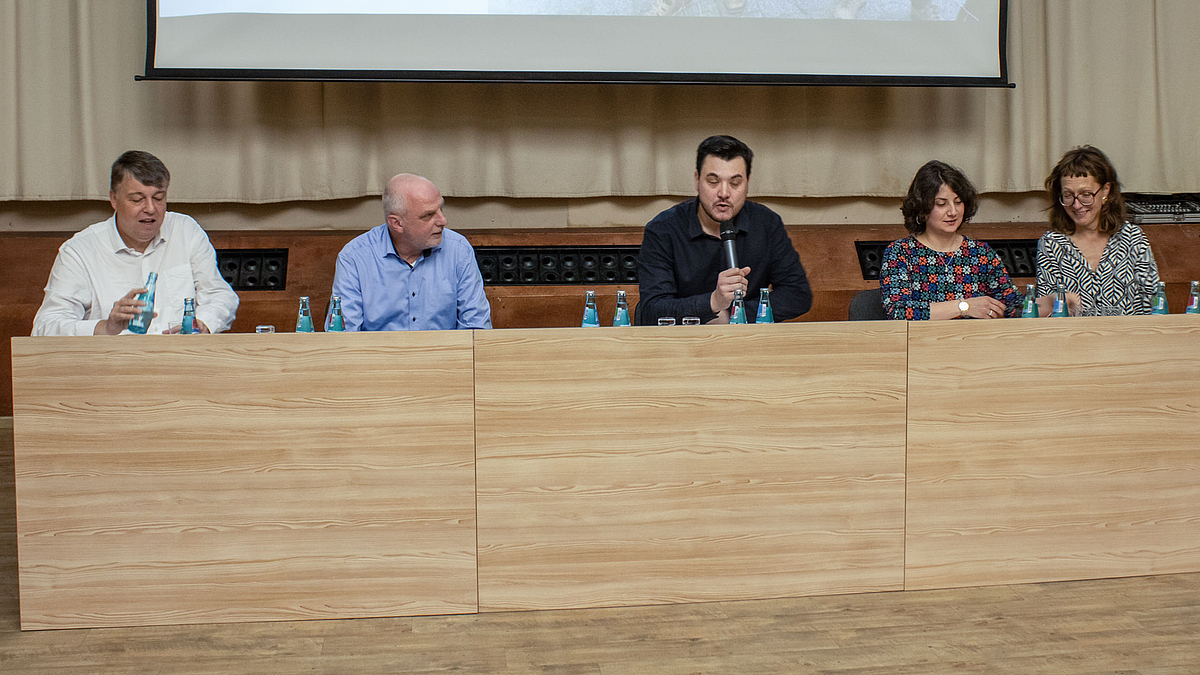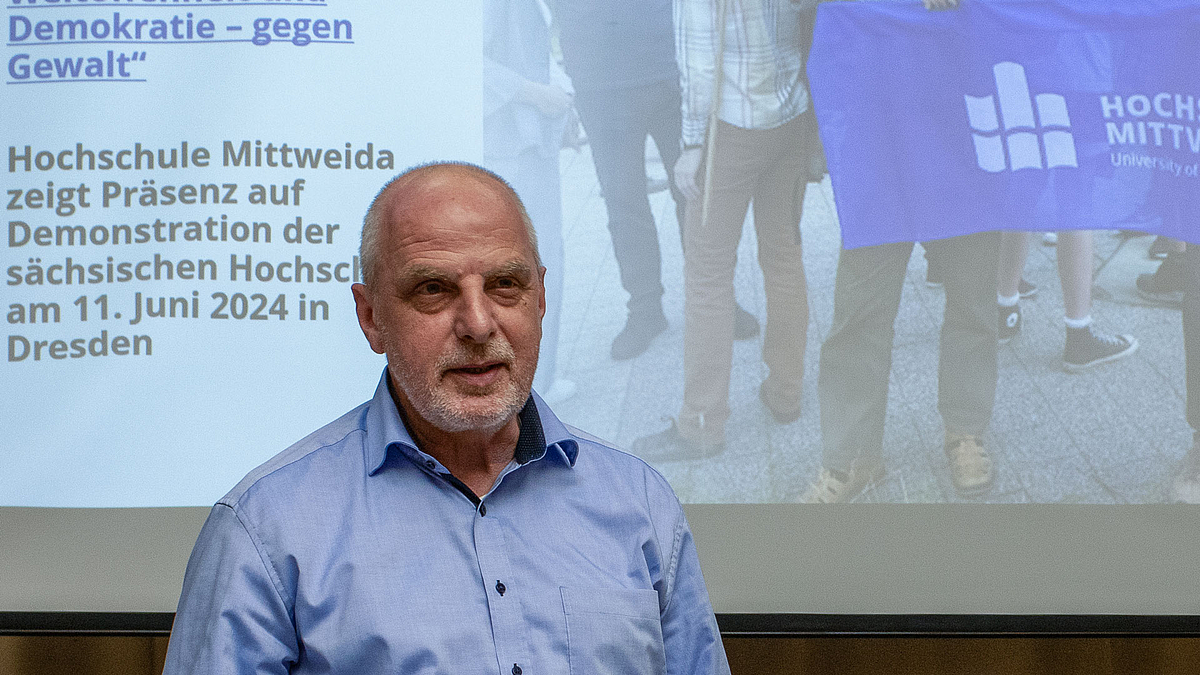After the elections in Saxony
After the elections in Saxony
Member of German Bundestag Detlef Müller responds to concerns and questions from international students
To dispel concerns and encourage future specialists who have already decided to stay in Saxony but are now having second thoughts to stay. That was the aim of Detlef Müller, deputy leader of the SPD parliamentary group in the Bundestag and member of the Bundestag from Chemnitz. On June 20, he met with international prospective students who are preparing for their studies in Germany at the Studienkolleg (Preparatory College) of Mittweida University of Applied Sciences at the Luxor Event Center in Chemnitz.
“Some of my students are scared and wonder whether Saxony will still be safe for them in the future,” explains Peter Maring, head of the preparatory college, which is based in Chemnitz. The current occasion is the elections in Europe and Saxony. “Our students are paying very close attention to the political discussions. They are even more aware of the election results. If extremist parties continue to gain strength, Saxony will be at an ever greater disadvantage as a location. This counteracts all efforts in the fight against the shortage of skilled workers that politics, business and we as universities are making together.”
272 international applicants from 40 countries are currently preparing to study in Germany at Mittweida University's preparatory college. Some are learning German, others are studying for the assessment test, which – comparable to the German Abitur – gives them access to university. Some do both. More than 1,300 international students are currently studying at Mittweida University, which is around a quarter of all its students (as of May 1, 2024).
In recent years, 80 percent of Studienkolleg graduates have subsequently enrolled to study in Mittweida. This retention rate is in danger. Many Studienkolleg students are unsettled after the results of the European and local elections and are looking ahead to the upcoming state elections in September with great concern. Quite a few have already applied to universities in the former West German federal states. The round table gave the students the opportunity to voice their concerns and fears.
In a keynote speech, Müller put the European election results into context. He made it clear to the students that many people in Saxony are committed to a cosmopolitan, pluralistic society and that Saxony is a good place to study, work and live. Many of the students’ questions revolved around the reasons for the electoral success of the “AfD”, especially among young people.
Open to the world
Vice-Rector Christoph Meyer had previously opened the event with a presentation on the topic of “Cosmopolitan University”. He said: “You are welcome in Mittweida. Even election results don't change that. The university will do everything it can to ensure that this remains the case in the future.”
In addition to Müller, Meyer and Maring, Chemnitz city councillor Julia Bombien and Seyma Yildirim also got into conversation with the students. The Q&A session after the presentations lasted a total of 90 minutes. Bombien offered to be available to the future students as their contact person should they become victims of racism. When asked by Müller, the students stated that they had not yet been victims of such acts. Nevertheless, their fears are real and the event has helped to dispel them.
The discussion partners emphasized that every international student is part of a pluralistic society and encouraged them to contribute to it. Even if they are not citizens, they can get involved in working towards an open-minded society. “There are associations, initiatives, parties and trade unions in which you can be active”, said Maring. “I think that was the most important input, because it empowers people. That way, they are not simply powerless in the face of developments.”
(Photos: Studienkolleg)


